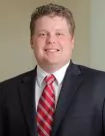The Centers for Medicare and Medicaid Services (CMS) publicly launched a database this week detailing the payments doctors and teaching hospitals have received from drug and medical device manufacturers. Under the Physician Payments Sunshine Act—a provision of the 2010 Affordable Care Act—CMS is required to collect and make available information about these payments, which certain manufacturers and other healthcare industry players must report.
The database that went live this week showed almost $3.5 billion in payments made to more than half a million providers. The data covers payments made in the last five months of 2013. Starting next spring, CMS plans to publish data every year that will include a full 12 months of payment data. Payments can include money for items such as research activities, gifts, speaking fees, meals and travel.
Some critics have alleged that the data released by CMS contains errors and is misleading. In addition, some associations, such as the American Medical Association, asked CMS to delay releasing the sunshine open payment data in order to provide doctors and hospitals more time to review the reports and identify mistakes.
Now that the data has been released, there are a few issues that academic medical centers and physician practices groups may want to consider monitoring. For example, those in the industry may be interested to see how the information contained in CMS's database changes, particularly those changes stemming from disputed data, over the coming weeks and months. By doing so, providers will have a clearer picture into just how accurate the data actually is. In addition, compliance officers, particularly for those of academic medical centers and large physician group practices that have policies prohibiting providers from accepting payments or other gifts, also may have a keen interest in monitoring the data to ensure their providers and facilities are abiding by the policies.
The content of this article is intended to provide a general guide to the subject matter. Specialist advice should be sought about your specific circumstances.


